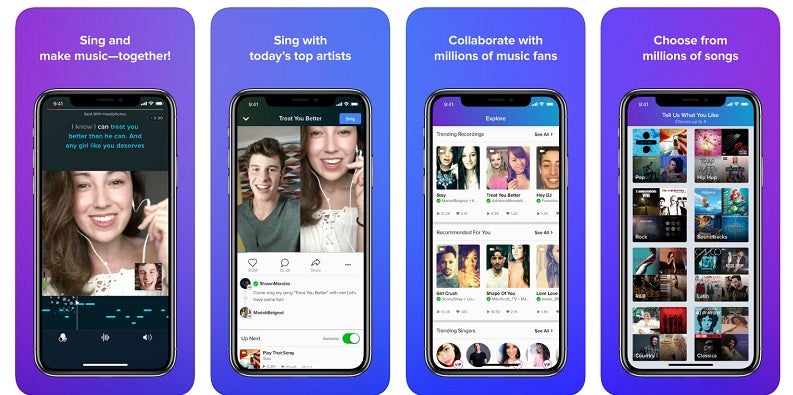Creating A Social Network Of Music With Over 50 Million Global Users Indians love to sing and Smule, a US-based company aims to build a network in India
Opinions expressed by Entrepreneur contributors are their own.
You're reading Entrepreneur India, an international franchise of Entrepreneur Media.

Dancing on melodious tones and signing popular lyrics, these things unite people across the globe. Culture and music is a beautiful thing that can bind millions in one rope. So like any field, a business potential was even found in this. The ingredient to bring music to life was simple.
1. Leverage on growing technology
2. Create a social musical network
3. Give birth to a musical app
The aim behind creating one such popular singing app Smule was simply to create a network where people who share a common interest in music around the globe could ally together using popular tracks and sing along.
Founded in 2008 in the United States by Jeffery C. Smith and Ge Wang, the app made its debut in the Indian market in 2016, however with time has gained popularity.
It is interesting to see how an app can create a community of its own and connect the world through a global community of 50 million monthly active users. The flagship app lets people sing and make music with friends and major artists around the globe—helping to bring music back to its roots of creation and participation. To help you, the app also lets us to autocorrect and amplify the sound quality.
50 Millions Network:
With the increasing space of popular singing apps in India, Smule aims to cater to the Indian market. Bill Bradford, President, Smule is the brain behind creating this 50 million community. He is the same person who created Simplify Media and later sold it to Google.
"Simplify Media was a mobile app that allowed users to stream their home music libraries from iTunes and other desktop players directly to their smartphone. We founded the company in 2006, well before music streaming services became widespread. Once the iTunes App Store was launched, our app became quite popular with users who didn't want to hassle with physically loading all of their music onto their phones. In early 2010, we sold the company to the Android group at Google, where our team and technology were refocused to deliver the Google Play Music streaming service," says Bradford.
Bradford very well understands the potential that technology and music can create together. So coming up with this music network came quite naturally to him.
"Smule's mission is to connect the world through music. We allow people to express themselves by creating the music, rather than just passively listening to it. Our flagship app enables music fans to easily record original audio and video performances of songs in any language and genre, often in the form of virtual duets with other users. They can even create video duets with top artists, such as Armaan Malik and Darshan Raval. The global Smule community performs, uploads and shares millions of songs every day," explains Bradford.

Source: Smule
Tik Tok, Musical.ly VS Smule:
As a music app user, you might wonder in the market which already has popular apps like TikTok and Musical.ly, what is it that makes Smule different?
Bradford explains they have curated a catalogue of millions of song compositions with corresponding backing tracks, lyrics, timing and pitch information. The focus is on authentic musical expression and meaningful connections.
Second, they have combined this vast library of structured musical content with advanced audio and video technology to make it easy for users to express themselves and create compelling performances.
Third, they focus on participation, in which they encourage users to actively join and contribute to someone else's performance, rather than just passively consume it. People who actually create music together form deep, lasting relationships.
Active User In The Indian market:
Smule already has a vibrant community of millions of music lovers in India and it is growning.
Indian vs global/ American music market:
Bradford feels that Indian users are more interested in improving their singing and performance skills than American users.
"We also see a higher participation rate from males in India relative to other regions. Rather than a single market, India is a collection of multiple languages, genres, and traditions, unlike countries with more homogeneous cultures," he points out.
Connecting Lives:
While every app has a story, but what keeps Bradford going is the meaningful impact it has had on the community.
"Most of our users meet for the first time by singing together, virtually, in the app. Many of them form close bonds. They often travel, sometimes between continents, to finally meet in person. We hear from many couples who initially connect on Smule and later get married, and it's common for us to get photos of the resulting "Smule babies." ;-)," he shares.
The Future, The Change:
It is fascinating to see how music, in general, is returning to its original and social roots. People have an innate desire to express themselves. They are demanding more interactivity than simply choosing which superstars to listen to. They want to participate in music.
Bradford strongly believes that this momentum will eventually cause both musical apps and the music industry itself to become more democratic and inclusive, rather than top-down.












